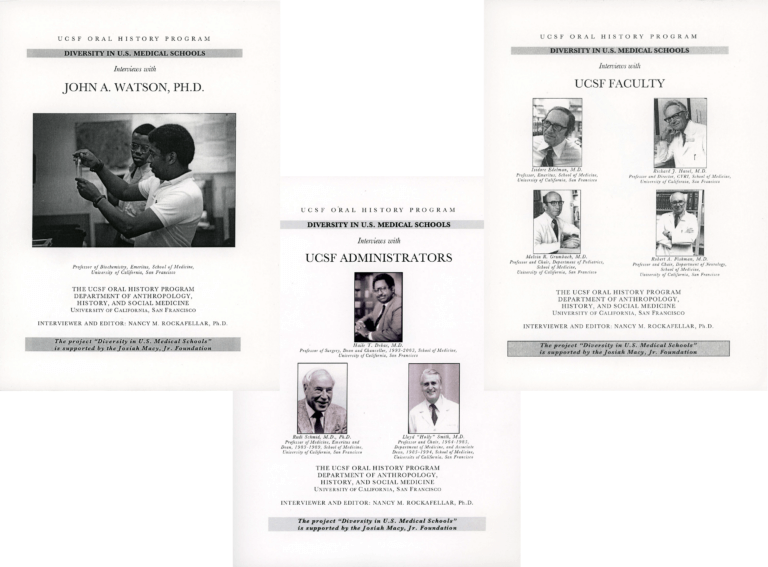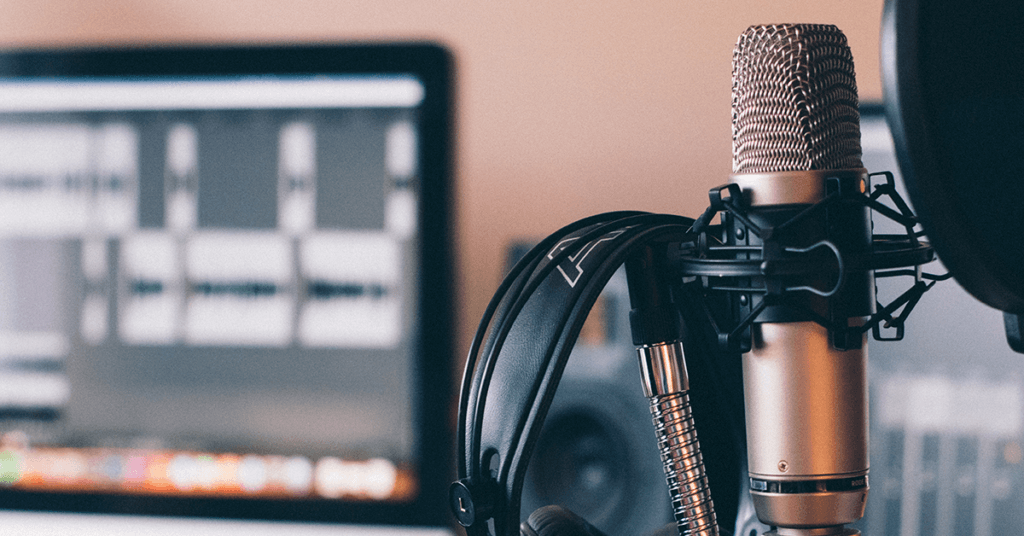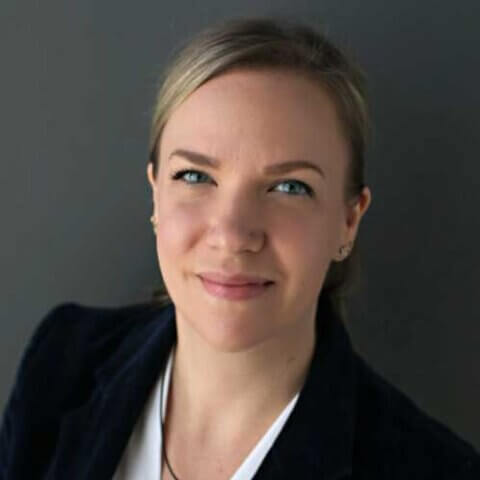In 2023, the UCSF Archives and Special Collections is embarking on an ambitious oral history project that seeks to elevate the narratives, perspectives, and expertise of historically underrepresented populations in the education and research communities at UCSF. Through engagement with diversity, equity, inclusion, and accessibility (DEIA) leaders from the four professional schools (dentistry, medicine, nursing, and pharmacy), we will record their experiences and document efforts to address and remediate inequities in health, health care, and health sciences education. Taking a profile approach, the goals for each interview will be informed by that person’s life history and experiences. At the conclusion of this one-year project we will organize a public event to introduce this new research corpus to the UCSF community.
Oral history and DEIA initiatives
Oral History is one of the many tools Archives and Special Collections uses to document different facets of UCSF’s history. One especially important project, was the “Diversity in US Medical Schools” series. This series focused on the policies UCSF and Stanford University medical schools pursued to increase racial and ethnic diversity. Within the collection are records from the 1960s to the 2000s and interviews with Julius R. Krevans, Philip R. Lee, John A. Watson, John S. Wellington, among others. The collection documents an important chapter in both Stanford and UCSF’s efforts to increase the diversity of medical students at each university.

Oral history is a valuable tool because it allows us to document personal stories and remembrances that are often missed in paper records. Like the “Diversity in US Medical Schools” series, the Diversity and Health Equity in Health Sciences Education (DHEHSE) Oral History Project seeks to understand not only the DEIA initiatives UCSF has pursued, but why leaders of these efforts chose particular paths of action and how previous experiences influenced their thinking. Furthermore, we can ask interviewees to reflect on these efforts in the present day. They can consider the long-term impact of their work, including what was successful and how they might have responded differently.
Plans for the project
The first phase of the DHEHSE Oral History Project included forming advisory committees at each of the four professional schools. Committee members are a mix of current and retired faculty and staff members. In addition to providing institutional knowledge and expertise, the advisory committees’ will develop and prioritize a list of interviewees from their respective schools. Oral history practitioners can come into institutional history projects with little prior knowledge, so advisory committees are especially valuable.
The DHEHSE Oral Project advisory committees have been established with the support from deans and administrators at each professional school. The committees are in the process of identifying potential interviewees and prioritizing who should be interviewed for this project. Interviewing is planned to commence in the next quarter, and we look forward to gathering the personal experiences of those who have and are performing essential work around DEIA and health equity at UCSF.
Feature image courtesy of Will Francis via Unsplash

